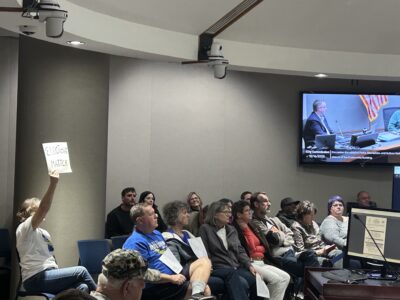Legislature considers anti-bullying measure
Schools would have to report bullying to the state
Topeka ? Taunted by bullies several years ago, Alex Tranin finally had to leave his Johnson County elementary school to attend a private academy.
“I couldn’t really learn because I was thinking about how I was going to get home or survive recess,” said Tranin, who is now 12.
Students and experts on bullying urged lawmakers Wednesday to adopt legislation that would require school districts to implement anti-bullying plans, and report bullying incidents to the state.
Several members on the House Education Committee said House Bill 2310 was too broad, but Chairman Clay Aurand, R-Courtland, said he hoped the committee could “make this a bill that is best able to achieve its goals.”
SuEllen Fried of Prairie Village, a longtime mental health advocate who has written several books on bullying, said youngsters today are confronted with much worse bullying practices than in the past, including cyberbullying where people write demeaning comments to children over the Internet.
“It is just as serious as beating kids up in the playground,” she said.
Aishlinn O’Connor and Kate O’Neill, both students at Shawnee-Mission East High School said bullying behavior also manifests itself in excluding students from certain groups or jokes between friends that denigrate someone.
Fried and Gina McDonald, vice president of education and awareness for the Kansas Children’s Service League, said victims of bullying sometimes lash out. School shootings are often the result of a student reacting to being bullied, they said.
“For the victim who either gives up and avoids going to school, or drops out, or commits suicide, or comes back to school with a gun, this is child abuse and they believe they have no other way out,” McDonald said.
Twenty-seven states have anti-bullying laws in place, and nine more are considering them.
But lobbyists for teachers and schools said the proposed measure could be expensive for schools by mandating specific requirements for districts to follow in the event of a bullying incident.
Diane Gjerstad, representing the Wichita school district, said it would be better to leave it to individual school districts to come up with policies. The KNEA also testified against the bill.
State Rep. Marti Crow, D-Leavenworth, said she thought the definition of bullying in the bill was too broad and could include any misbehavior. She also said the bill should focus more on providing anti-bullying education.
In Lawrence, school officials have implemented the Olweus Bullying Prevention Program in four elementary schools.
Chris Squier, director of the Safe Schools-Healthy Students initiative, said the program has resulted in a 50 percent decrease in bullying at Langston Hughes and Woodlawn, which have had the program the longest.
“In the past people thought being bullied was just a part of growing up, but because of school violence that has been tied to bullying, people have begun to realize that we need to do something about it,” Squier said.
She said a statewide mandate would increase awareness of bullying, but anti-bullying efforts should be tailored for each individual school with input from students, parents and teachers.
“People can then come to an agreement that in this building this is what bullying means, and everyone will be looking for it and see it and deal with it,” she said.







